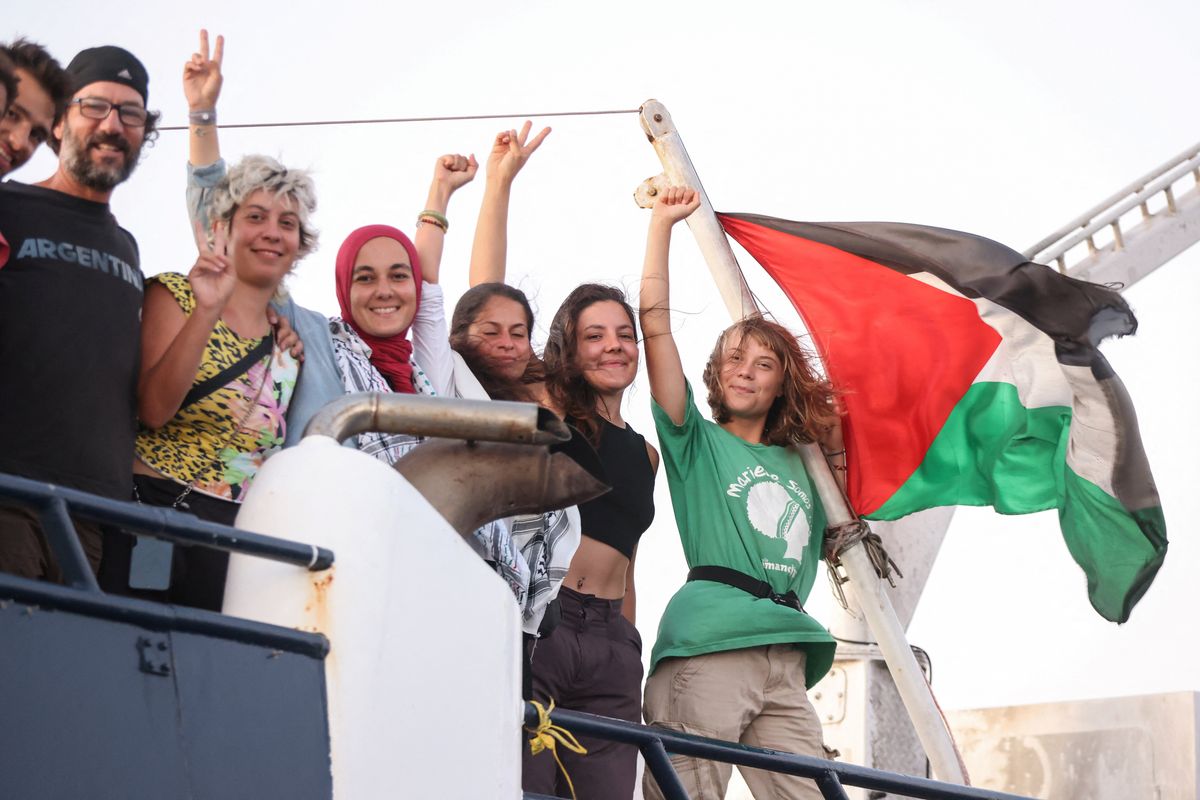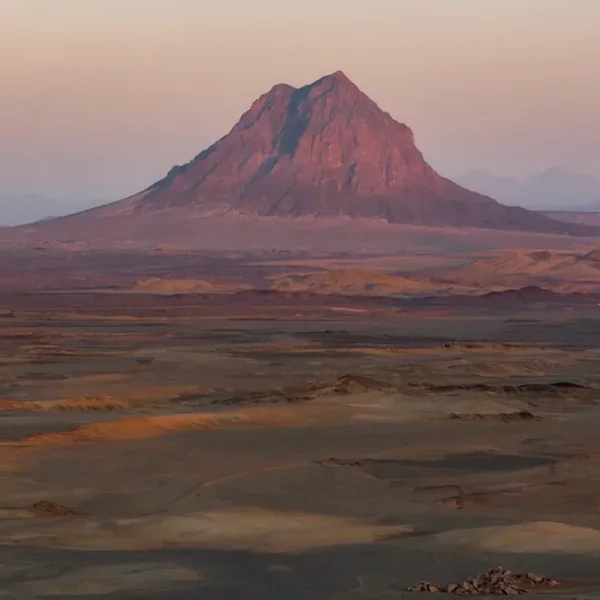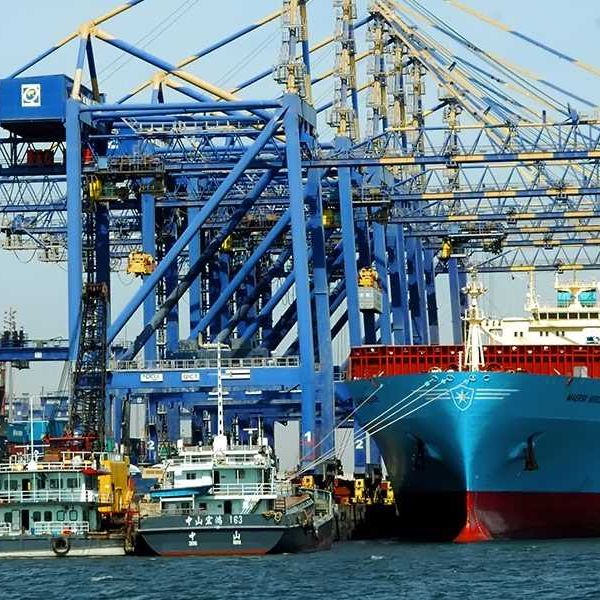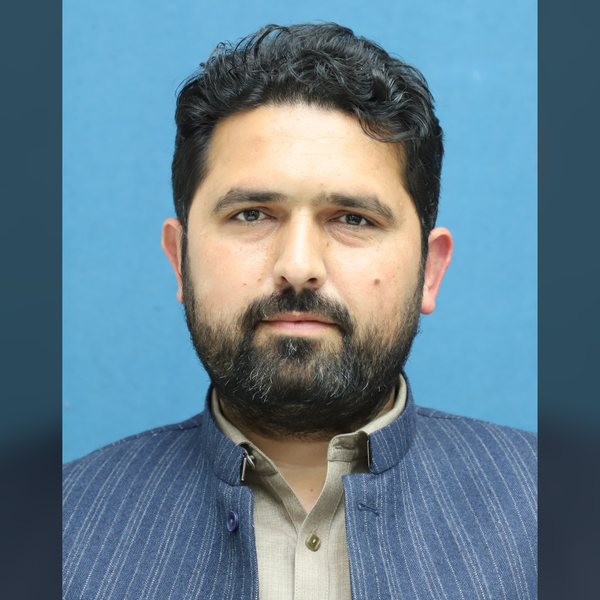'If it costs me my life, I don't care': inside the Gaza flotilla
The Sumud flotilla included participants from 16 countries, with the majority being non-Muslim volunteers showing global solidarity with Palestinians
Huzaifa Rathore

Greta Thunberg and other crew members flash victory signs from their ship, part of the Global Sumud Flotilla aiming to reach Gaza and break Israel's naval blockade, as they sail off Crete island, Greece, September 25, 2025.
Reuters
Pakistani officials and journalist detained in international waters before release
Boats named after Palestinian victims, including seven-year-old Hind Rajab
Greta Thunberg among 479 detainees held in prison-style camps
An international flotilla carrying aid to Gaza was intercepted by Israeli naval forces in late September, detaining nearly 500 activists from 16 countries, including several Pakistanis.
Among those aboard was Syed Mazhar Shah, information minister of Pakistan-administered Kashmir. "My boat was named after a seven-year-old girl, Hind Rajab, who was shot with over 300 bullets by the brutal Israeli forces," Shah said.
The recent mission was stopped by Israeli naval forces in international waters, disrupting communications and temporarily detaining volunteers. Pakistan lodged a formal protest and demanded the safe return of its nationals.
What is the Sumud Flotilla?
The Sumud Flotilla is part of an international humanitarian initiative aimed at breaking the Gaza blockade and drawing global attention to the ongoing humanitarian crisis there. The word "Sumud" means "steadfastness" in Arabic, a reference to the resilience of Palestinians living under siege.
The effort traces back 15 years to the Mavi Marmara incident, when Israeli forces intercepted a Turkish aid ship carrying supplies for Palestinians. Nine activists were killed in the raid, sparking global outrage and inspiring future flotilla missions.
Pakistani journalist Talat Hussain was also among those detained by Israeli forces during the operation. He was held for several days before being released and returning safely to Pakistan.
Pakistan’s participation
In 2025, participants from 16 countries joined the Global Sumud Flotilla, including Malaysia, Qatar, Pakistan, Turkey, and South Africa. From Pakistan, the delegation included Mushtaq Ahmad Khan, Osama Riaz, Syed Uzair Nizami, Ismail Khan, Khateeb ul Rehman, and Syed Mazhar Shah, the Information Minister of Pakistan-administered Kashmir.
In late September, as the flotilla neared Gaza's waters, Israeli naval forces reportedly intercepted the ships in international waters. Communication was disrupted, and several volunteers were temporarily detained. The Government of Pakistan lodged a protest and demanded the safe return of its nationals.
In an interview with Nukta, Mazhar Shah said 60% of the participants were non-Muslims and 40% were Muslims.
He recalled a woman who had also been part of the 2010 flotilla. "If I can take even 100 kilograms of wheat to Gaza, and if it costs me my life, I don't care," she had said. "Everyone was in tears" when some participants had to be offloaded because they all wanted to reach Gaza and help, he said.
He said the flotilla was not only meant to deliver aid but also to raise a voice against the Israeli government. Malaysia led the Asian contingent, of which he was part. "I truly wish that Pakistan could lead the next flotilla," he said.
Criticism and questions
Israeli forces detained 479 people aboard the flotilla, including Swedish climate activist Greta Thunberg. Israel later deported 171 activists to Greece and Slovakia. According to accounts from those released, the detainees were held in prison-style camps, where an Israeli cabinet minister reportedly showed up and shouted at them. Former Senator Mushtaq Ahmed Khan, who was also part of the flotilla, has been released.
While supporters call it a "symbolic act of resistance," critics argue that such missions provide no tangible relief to Palestinians. Some question whether the flotilla serves humanitarian purposes or political optics, asking if these voyages are more about global attention and personal popularity than actual help.










Comments
See what people are discussing